If the walls in MPs’ parliamentary offices could talk, they would offer up endless political intrigue and a bookcase of tell-all best sellers. These offices are the inner sanctum where free words can be spoken and foul words sworn, where strategies are hatched and decisions are made, sometimes late into the night.
Put simply - in MPs’ offices, big decisions are made. In Ministers’ offices, really big decisions are made. So it’s essential she or he is supported by a slick pit crew. That crew is invariably made up of administration staff, policy, communications and ministerial advisors. To run smoothly, everyone must know their job and be able to work together.
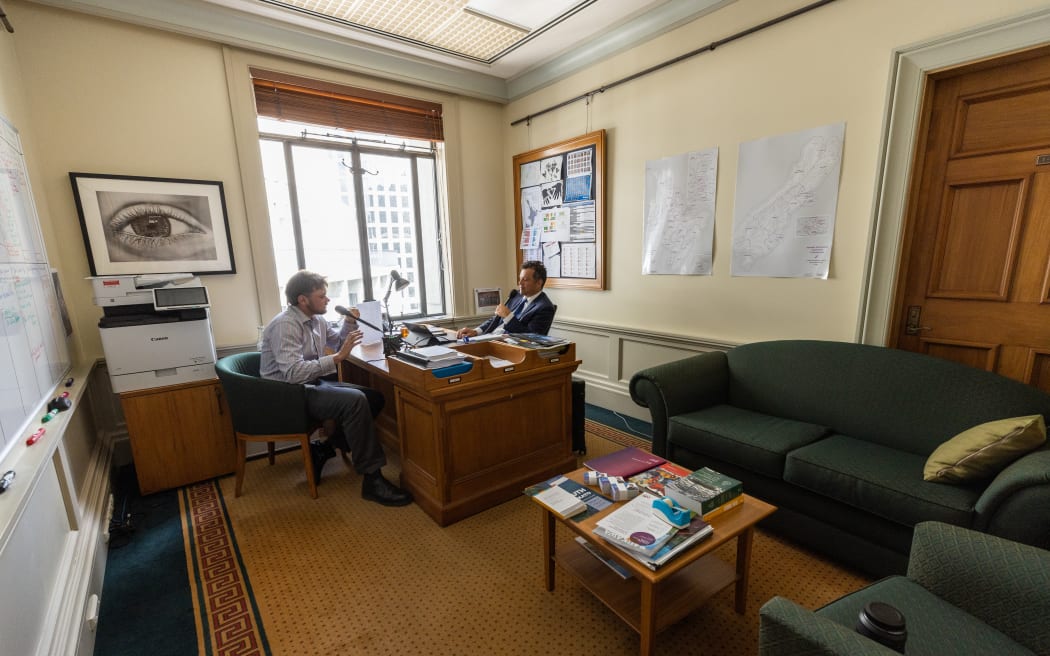
Louis Collins (left) interviews National MP Joseph Mooney in his Parliament office. Photo: Phil Smith
Opposition leaders tend to have a handful of staff. Office lay-outs in some of the second tier parties have often been more open plan, or rooms that open out to an area with shared support staff. The standard backbencher though, without the luxury of a support army, well, sometimes they even have to plunge their own coffee.
As we sit in his parliamentary office, which feels no bigger than a large cleaning cupboard, National MP and Member for Southland, Joseph Mooney, reminds me of the sheer size of the electorate he represents. Stretching from Milford Sound in Fiordland across to the Catlins, “it is literally bigger, geographically, than Belgium,” he tells me. That’s a heck of a lot of land.
Because of its vastness, Mooney has three electorate offices; in Alexandra, Queenstown, and Gore.
“More often than not,” he adds, “when I’m in my electorate, I’m not in my offices.”
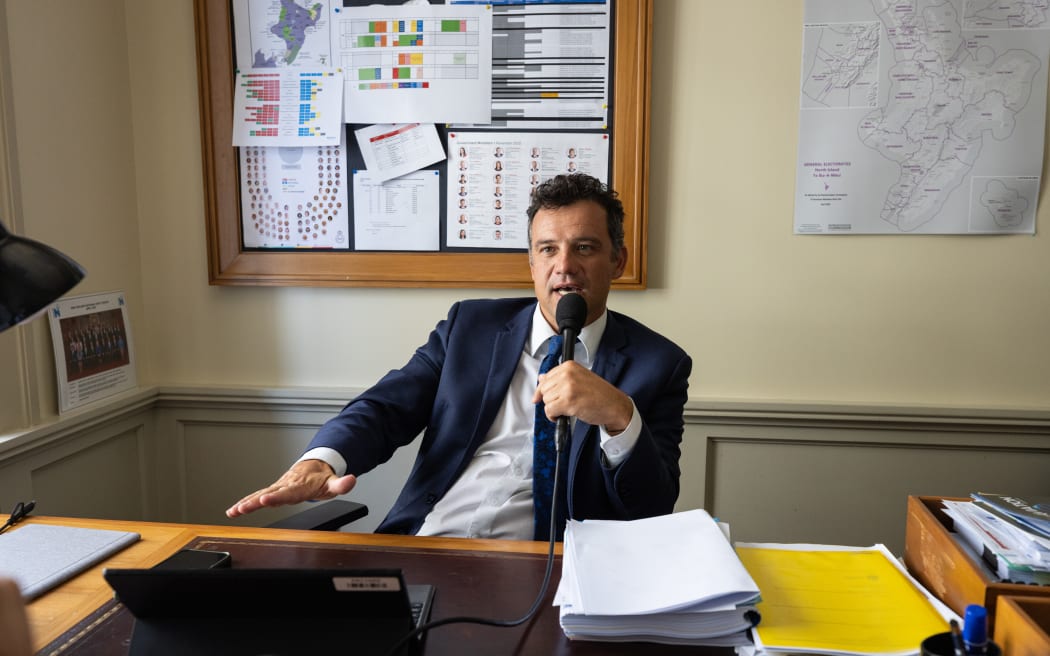
National MP Joseph Mooney in his Parliament office. Photo: Phil Smith
You would have thought an MP with a sizeable electorate (and built on our two main exports, farming and tourism) would have a compliment of Wellington-based support staff to ensure the MP can stay across their electorate’s issues, as well as effectively perform their duties at Parliament. Well, that’s not how it works.
In Parliament, Mooney has an Executive Assistant, (referred to as an EA) who covers a variety of office duties.
Standing at the door of the office as we chat to Mooney is Connie. Officially, Connie’s role is advisor to Joseph Mooney MP. Though that doesn’t quite do it justice.
Her responsibilities include (deep breath) covering select committee work, media, outreach, communications, research, and of course being across all five of Mooney’s shadow portfolios. The Member for Southland is opposition spokesperson for Forestry, Space, Treaty negotiations and the associate roles of Tourism and Agriculture.
Further south, Mooney has one (part-time) staff member in each of his three electorate offices.
Between electorate duties, select committee roles and general MP duties, he concedes that for him and his small team, it’s a constant balancing act, “both in a time and presence sense,” he says, “and the issues you focus on”.
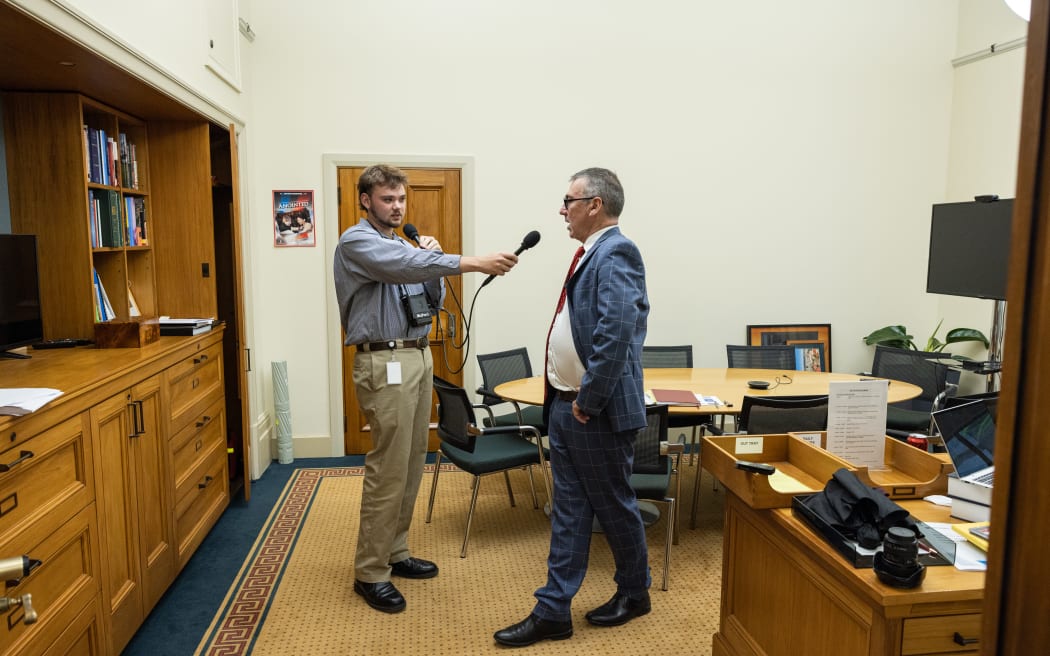
Louis Collins (left) interviews Duncan Webb in the MP's office at Parliament. Photo: Phil Smith
A slightly bigger box
Down two flights of stairs and around the corner from the press gallery offices is the office of the MP for Christchurch Central, the Honourable Duncan Webb. Much like a tardis, the main door to this office is standard but deceiving. We’re greeted by Webb’s press secretary Chris, and invited into a room with two desks and a lot of framed antique maps.
This seems to be just one component of the office; a staff wing of sorts, which is already about the same size as Joseph Mooney’s entire office is a couple floors up.
A door opens and about eight or nine staff members scuttle out before Duncan Webb emerges. We’ve arrived early and Webb’s only just finished a meeting.
The Cabinet reshuffle in January this year meant new roles for Webb along with a new honorific. Becoming a minister means he’s now referred to as ‘honourable’ and inevitably it also means a whole lot more meetings. “I’m now the minister for shopping” he says flippantly as we move into his room. Though that’s not far from the truth. Webb’s new roles are Minister of Commerce and Consumer Affairs as well as Minister for State Owned Enterprises.
With new roles comes new digs.
Webb’s new office looks out into Parliament’s garden atrium, a rare oasis of greenery amongst the grey granite and marble of Parliament House. For any MP, an office opening out to the atrium makes for a nice place to eat, lunch or daydream about landing the top job one day.
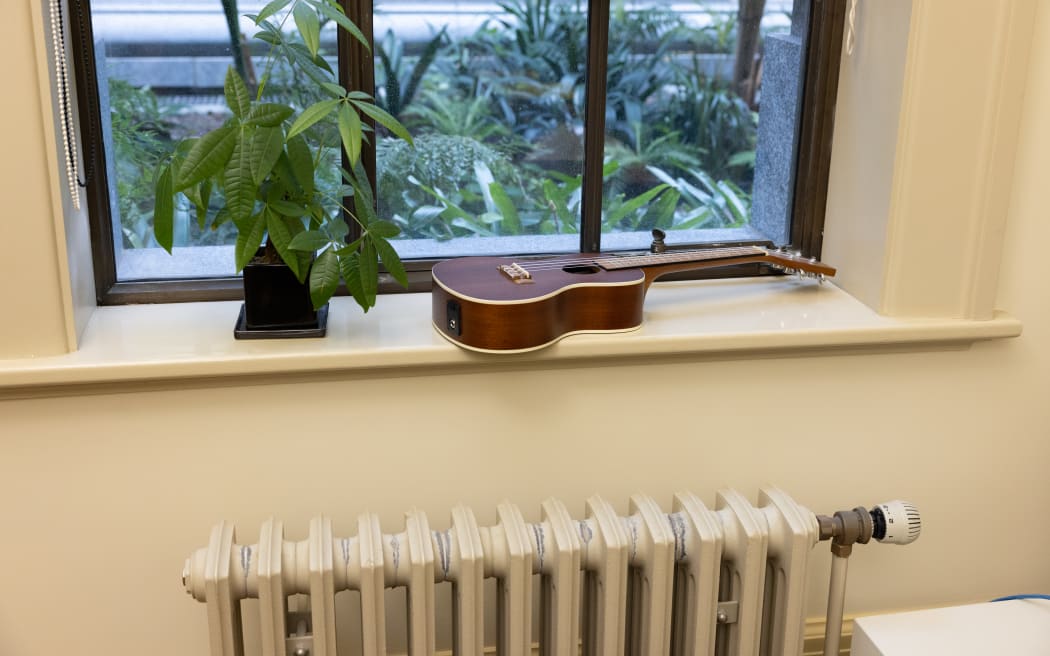
Duncan Webb's ukelele in his MP office at Parliament. Photo: Phil Smith
“This is where the real work gets done. Upstairs in the Whip’s office, (Webb’s previous role) it’s just about management,” Webb tells me.
So in the shift up to ministerial ranks, and added workload and responsibility, Webb is allocated more staff.
Back in that room with the old maps, there are two desks. They belong to administration assistant, Casper, who represents New Zealand in the sport of fencing when he’s not working at Parliament. Across from him is Melissa, Webb's Senior Private Secretary who, going by Webb’s testimony, could represent New Zealand in “knowing everything.”
Through a closed door is the third room of Webb’s office where his ministerial advisor, Claire (that’s Claire Szabo, former Labour Party president), works alongside his press secretary. But the list doesn’t stop there.
Also in his arsenal are departmental secondees. In Webb’s case that's private secretaries from MBIE (Commerce and Consumer Affairs) and Treasury (State Owned Enterprises).
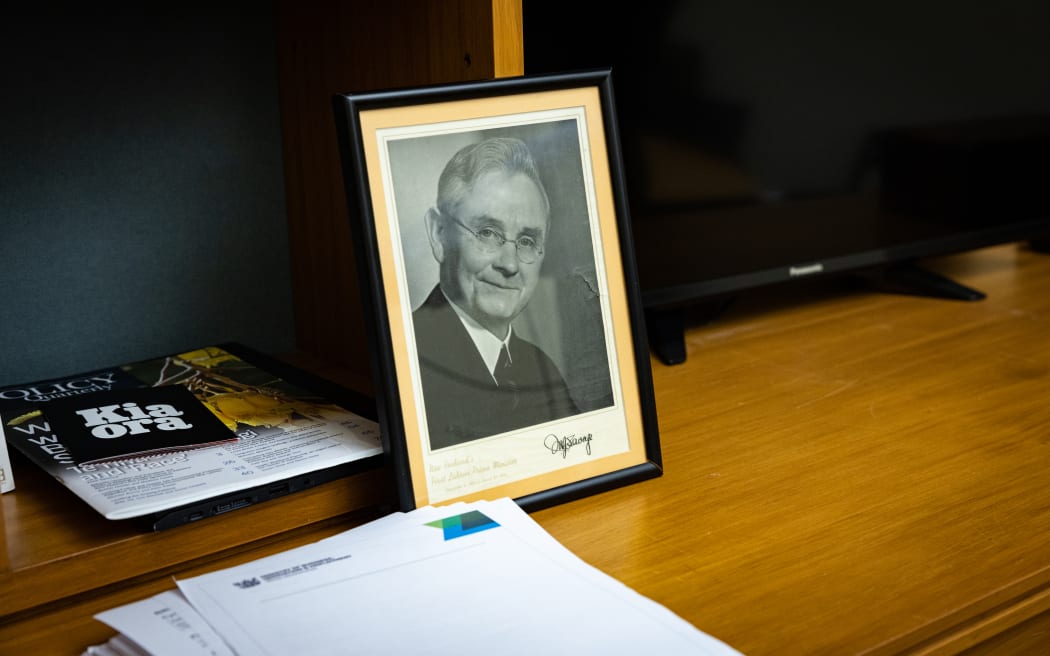
A portrait of former Prime Minister Michael Joseph Savage in MP Duncan Webb's office at Parliament. Photo: Phil Smith
Down in the garden city, Webb’s electorate office in Christchurch has almost two staff members; one full time and one three days a week.
“And then we have a few other people coming in and out,” explains Dr Webb, “to stay connected to the community.”
(Electorate office staff are employed by Parliamentary Services while ministerial staff are employed and funded by the Department of Internal Affairs.)
The Member for Christchurch Central describes the staff in his two offices as “a large network of people doing a whole lot of different roles and all trying to support me and what I’m trying to achieve”.
“I'm really lucky they’re all on board and really happy to work,” Webb adds.
Since taking on his new roles, he reckons he spends most of his time listening to officials briefing him on what they’re doing in the various departments. That usually happens around a large table in the middle of his office; a table that wouldn’t be out of place in a Tinakori Road antique shop.
Perhaps it’s a common experience among newish MPs from out of town, but Webb confides that it’s hard not to get “sucked into the Wellington vortex”. But Webb insists he’s still very firmly rooted in Christchurch, with his family and community.
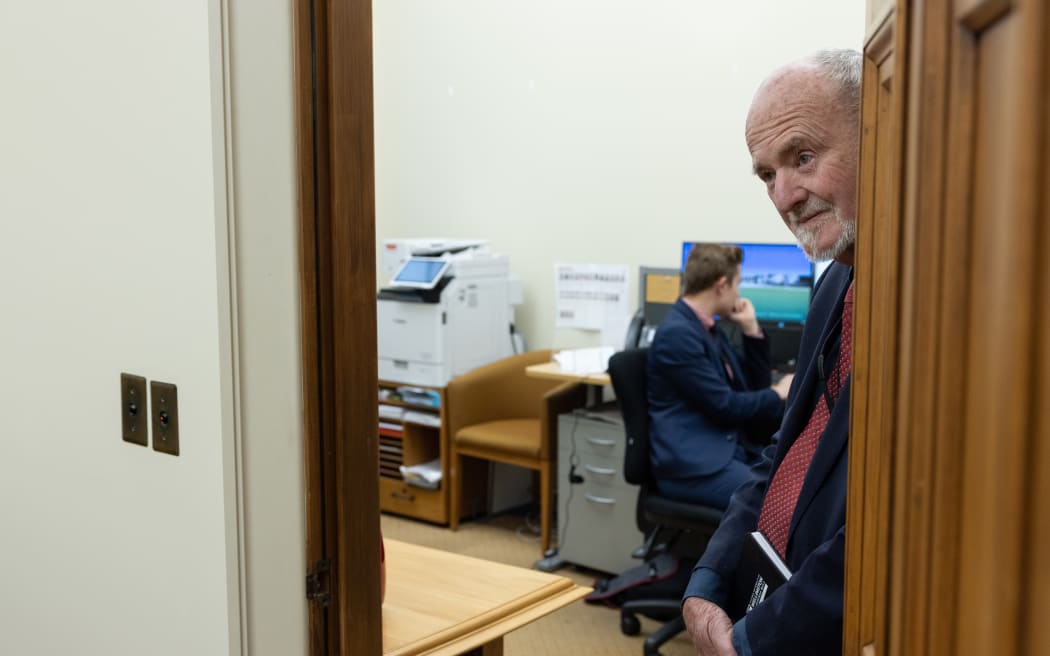
Duncan Webb's media advisor Chris Harrington takes a peak into the MP's office at Parliament to check on his interview with The House. Photo: Phil Smith
Despite the expanded roles, attendant staff and nice new office, he muses that perhaps the most relaxing place to get his work done is back home in Christchurch, sitting at the kitchen table.
But MPs know not to get too settled in their offices. With an election coming around fast, Joseph Mooney and Duncan Webb could soon be on the move again.

